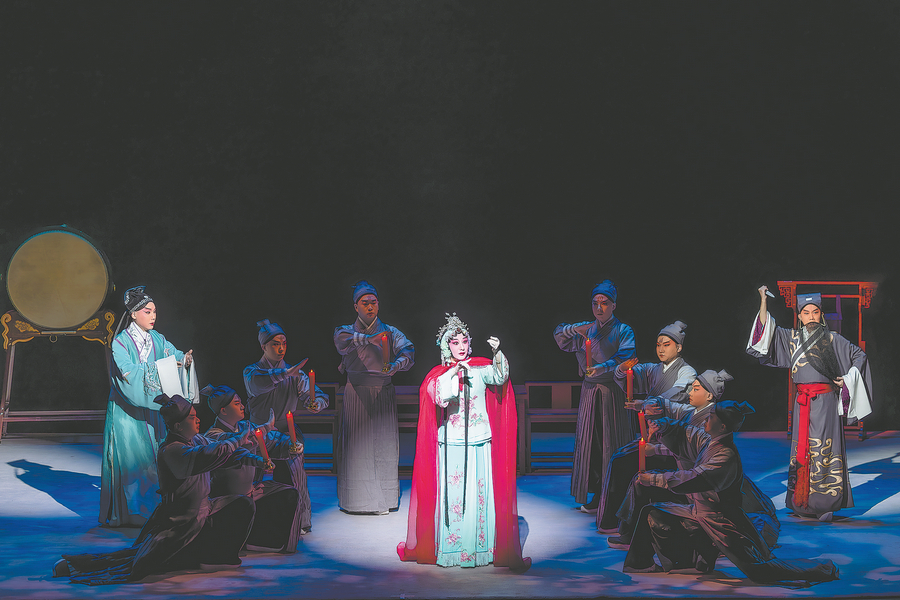

Nestled in a quiet corner of bustling Beijing, the Star Theater has become a beloved hub for young theater lovers, known for its immersive productions that bridge the past and the present. This year, from Oct 22 to Dec 31, the newly renovated Star Theater will host the Xiqu Opera Black Box Festival, a vibrant celebration of traditional Chinese opera presented through a fresh, contemporary light.
Supported by the China National Arts Fund, the festival will feature 21 productions across more than 60 performances, spanning iconic Chinese opera styles such as Peking Opera, Kunqu Opera, Qinqiang Opera, and Yueju Opera. Each show aims to keep the traditional Chinese arts alive, offering seasoned fans and newcomers alike a chance to experience the richness of these time-honored performances.
Since its inception, the festival has presented over 160 shows, representing more than 30 types of traditional Chinese opera, attracting around 250,000 theatergoers. It has become a pivotal platform for introducing this ancient art form to a new generation, many of whom are unfamiliar with its heritage.
"For younger audiences, especially those unfamiliar with traditional Chinese opera, the festival serves as an invitation to connect with a rich cultural heritage," says Bai Ailian, theater director and executive director of the festival. "At the Star Theater, the intimate setting ensures that every emotion, every nuance, and every beat of the story is felt deeply. The shared experience creates a lasting impact that extends far beyond the final curtain."
A standout production this year is Fated at Wulong Temple, a reimagining of the classic Peking Opera, directed by Hu Hanchi. Performed at the Star Theater on Oct 29 and 30, the play blends contemporary sensibilities with traditional storytelling. Hu, 34, grew up in a family of Peking Opera artists but was also immersed in a world shaped by pop culture and social media, which helps bring his fresh vision to the stage.
Based on the 14th-century Chinese classic Water Margin, the play focuses on the tragic female character, Yan Xijiao, a concubine caught in a tangled web of love, betrayal, and fate. The adaptation shifts the spotlight onto Yan, exploring her repeated attempts to break free from a destiny beyond her control.
While Fated at Wulong Temple retains the grandeur of traditional Peking Opera with its intricate costumes and minimalist sets, modern touches in lighting and stage design highlight the emotional depth of the narrative. The production's intimate scale, with only eight performers on stage, allows the audience to feel personally connected to Yan's journey. The actors' voices and movements resonate within the small theater, creating an intensity often diluted in larger venues.
One remarkable element is the use of qiao gong, a challenging technique of performing on stilts, which adds both visual spectacle and dramatic tension to the story. Hu recalls the impact of performing the play in a small venue: "The atmosphere was unlike anything the audience had experienced in larger theaters. The crowd was small but diverse — elderly opera enthusiasts, young professionals seeking a new theater experience, and curious teens with their smartphones tucked away, eager to explore something new."